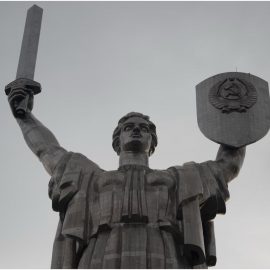

This article is an excerpt from the Shortform book guide to "On War" by Carl von Clausewitz. Shortform has the world's best summaries and analyses of books you should be reading.
Like this article? Sign up for a free trial here .
What is the purpose of war? Can political objectives be achieved without resorting to war?
According to Prussian general and military theorist Carl von Clausewitz, the purpose of war is to achieve a political outcome, but war is often misused. Politicians often start wars that achieve the opposite of what they wanted to achieve.
Keep reading to learn about the main purpose of war, according to Clausewitz.
The Purpose of War
What is the purpose of war? According to Clausewitz, war is nothing but a tool of politics. When different nations or groups have conflicting political interests, one way to make the other side accommodate your interests is to compel them by means of military force. This, then, is the purpose of war: to force the enemy to comply with some kind of political demand. For example, maybe one country demands control of a region currently controlled by another country and invades that region if the other country refuses to cede it. Or perhaps an interest group within a country demands governmental reform and starts a revolutionary war if the government doesn’t reform.
(Shortform note: Robert Greene turns this definition of war around and uses it as the basis of his book The 33 Strategies of War. Where Clausewitz says the purpose of war is to compel someone (typically the leader of a rival nation) to yield to political demands, Greene says that any attempt to compel or control someone is itself an act of war. As such, he argues that you can apply strategies developed for military operations in any area of life where people may try to control you, such as work and business.)
Defenders Make Wars Happen
As Clausewitz points out, his definition of the purpose of war implies that, as counterintuitive as it sounds, war is generally caused by defenders, not aggressors. This is because aggressors don’t directly make war; they only make political demands and perhaps send troops to enforce their demands. If the defender gives in to their demands without a fight, then the war doesn’t happen.
| Fighting Back It may be more intuitive to rephrase this principle as “bullies prefer victims who won’t fight back.” Fighting back is the cost of preventing the aggressor from getting their way, whether the aggressor is a foreign nation invading your sovereign territory or a burglar invading your home. Is defying the aggressor’s intentions worth the cost? Some have argued that it isn’t. For example, theologian Dietrich Bonhoeffer argued that non-resistance to aggression is morally preferable. However, others such as self-defense trainer and former US Army Ranger John Lovell argue that the moral and psychological cost of allowing someone to commit a horrible crime is far greater than the cost of fighting back. It seems safe to assume that Clausewitz would agree with this perspective, both in the case of individuals and nations. |
War Can Be Misused
Of course, war is not the only tool for advancing political interests. Clausewitz would probably agree that you shouldn’t resort to war if you can achieve your political purpose by other, less extreme measures. He does point out that, while war is a tool of politics, politicians sometimes use it in ways that defeat its purpose.
(Shortform note: Some experts argue that war and a combative mindset are usually counterproductive because they provoke others to resist you. In The Anatomy of Peace, the Arbinger Institute argues this point and proposes a strategy for getting others to accommodate your interests or demands without resistance by first building a relationship with them based on a cooperative mindset. They develop this strategy mostly in the context of interpersonal relationships, but some elements of their strategy could apply to international relations as well.)

———End of Preview———
Like what you just read? Read the rest of the world's best book summary and analysis of Carl von Clausewitz's "On War" at Shortform .
Here's what you'll find in our full On War summary :
- Carl Von Clausewitz’s philosophical ideas about war
- Why defenders are responsible for most wars
- Why soldiers shouldn't sleep in tents






